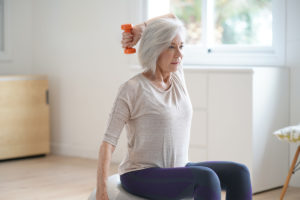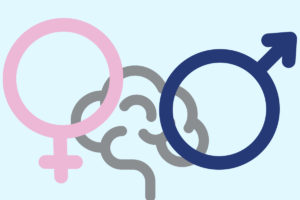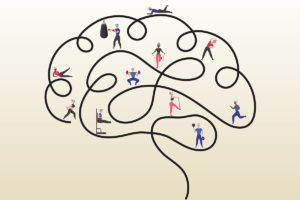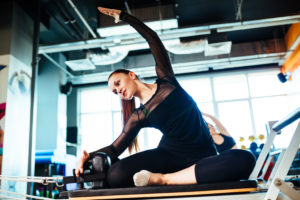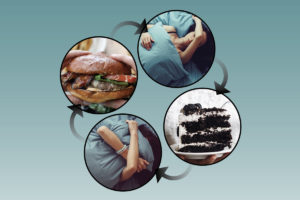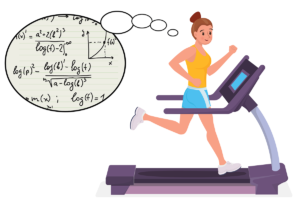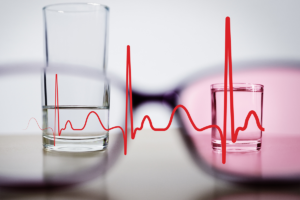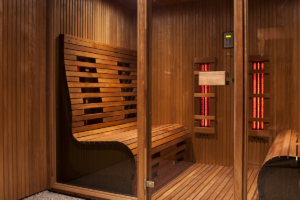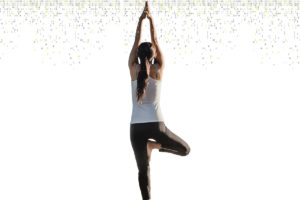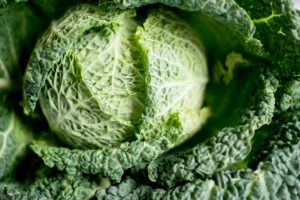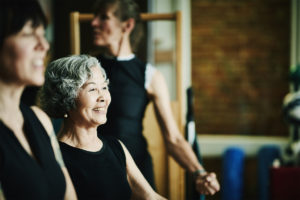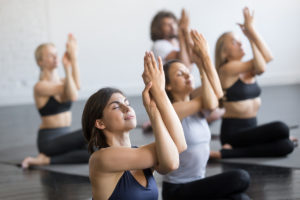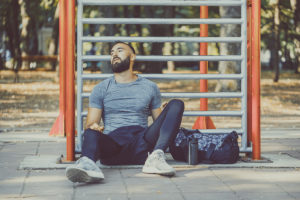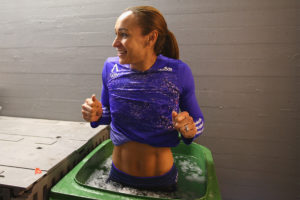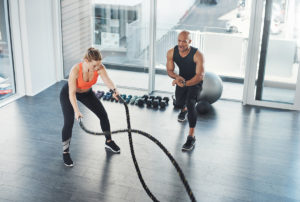Mind-Body / Recovery
Unstable Resistance Training Benefits Older Adults
Another study exploring the cognitive benefits of exercise affirms the positive effects of unstable resistance training.
Exercise and Mental Fitness
Researchers analyzed 80 studies on physical training’s cognitive benefits, highlighting differences by activity, gender and intensity.
Brain Fitness Versus Physical Fitness for Healthy Aging
Cognitive capacities influence physical activity levels more than vice versa, so people with healthier brain functioning are more likely to be active.
Pilates and You
Did you know that modern Pilates is a mind-body exercise approach requiring core stability, strength, flexibility, muscle control, posture and breathing?
Yoga and a Good Night’s Sleep
Yoga effectively reduces chronic lower-back pain and associated sleep disturbances, lowering the need for sleep medications.
Bad Sleep, Bad Diet
Below-par sleep habits can trigger below-par food choices, and the two together can equal a higher risk for conditions like heart disease and obesity.
10-Minute Natural Stress Relief
Your clients may feel fairly stressed after being quarantined, so why not advocate for their overall health by encouraging them to be active in nature?
Aerobic Fitness and Brain Health
High levels of cardiorespiratory fitness were consistent with findings of increased brain volume in areas that impact stress regulation and memory.
Is the Glass Half-Full?
One’s outlook on life may have a significant impact on heart health. Optimism is linked with a longer life and a lower risk of cardiovascular events.
Alternate Exercise Recovery Methods
You may be used to speeding up your exercise recovery via methods such as myofascial release with foam rollers and good sleep hygiene. While these techniques are tried-and-true, the rising enthusiasm for hard-hitting exercise routines has spawned a growing interest in alternative recovery techniques. Pete McCall, MS, personal trainer, exercise physiologist and an adjunct faculty member in exercise science at both Mesa Community College and San Diego State University, outlines six options for you to consider.
Seeking Relief From Digital Distraction?
As fitness professionals, we face the challenge of competing for our clients’ attention. People often have a difficult time focusing on the present moment and are unwilling to disconnect. Research reveals what neuroscientists and psychologists have identified about technology-addicted behavior and which activities can provide relief. Read on to gather information and tips for you and your clients.
Prebiotics for Better Sleep
Prebiotics are best known for supporting gut health, but they can also improve sleep and enhance stress resilience, according to a study published in Scientific Reports. Researchers from the University of Colorado Boulder say prebiotics—dietary fibers that nourish the gut’s microbiome—create a symbiotic relationship with the body that affects the brain.
Life Purpose Is Linked With Longevity
Link up with clear goals and find your wellness groove. In a study of nearly 7,000 American participants over age 50, researchers found that having a strong sense of purpose in life was linked with a lower rate of death from all causes.
Yoga Boosts Brain Fitness
Practicing yoga benefits both brain structure and function by increasing grey matter in brain regions responsible for memory recall and emotion regulation, among other changes, according to research findings published in Brain Plasticity (2019; doi:10.3233/BPL-190084). Researchers at the University of Illinois and Wayne State University reviewed 11 studies that examined the effects of yoga on brain structures, function and cerebral blood flow.
Overtraining Tires Mind and Body
Here’s another reason to encourage exercise enthusiasts not to overtrain. New research shows that cognitive fatigue is as much an effect of overtraining as physical fatigue.
The Best Way to Use Ice Baths
If repairing and building muscle is a primary goal, people may want to think twice about taking an ice bath after training. New research conducted at Maastricht University in the Netherlands shows that cold-water immersion during recovery from resistance-type exercise reduces muscles’ ability to take up protein for repair and to synthesize protein to muscle building.
Your Gut Microbiome and Its Connection to Sleep
The gut and sleep? There is more to it than munching too many chips while binge-watching a favorite show and then tossing and turning all night. Home to thousands of bacteria that make up the microbiome, the gut affects appetite, metabolism, weight management, and whether or not a sound sleep arrives at night. To understand how nutrition, the gut and sleep interact, take a closer look at the purpose and physiology of sleep. Then discover the intricate web that ties together food and drink, the gut, and the health benefits of sleep.
Using Periodization to Promote Optimal Recovery
High-intensity interval training and variably challenging, high-intensity workout programs continue to be popular because they produce the results that clients want. High-intensity exercises can be effective, but they place a lot of stress on the physiological systems of the body. Proper recovery is therefore important.
The Forgiveness Factor
Do you know that forgiving others can help your mind and your body? Forgiveness is universally accepted throughout the world’s religious and spiritual practices. Learn what the research says about forgiveness, how you can achieve it for yourself and how you can introduce the concept to clients.
Health and Wellness Coaching Approved as Healthcare Service
Health and wellness coaching has hit an important professional milestone. The AMA has officially recognized the role of health and wellness coaches as nonphysician healthcare professionals by approving procedural codes for tracking health and well-being coaching services. This means that health and wellness coaches who are certified by either the National Board of Health and Wellness Coaching (NBHWC) or by the National Commission for Health Education Credentialing Inc. are recognized as Category III healthcare professionals.
